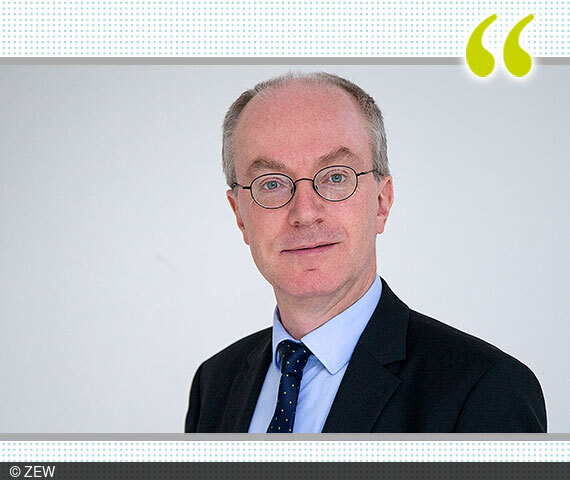Situation of Government Budgets in Germany Remains Favourable
CommentZEW Economist Friedrich Heinemann on Tax Revenue Estimates by the Federal Ministry of Finance
The German Federal Ministry of Finance’s Working Party on Tax Revenue Estimates has made a downward adjustment of its forecasts for federal, state and municipal tax revenues in Germany up until the year 2023. Professor Friedrich Heinemann, head of the “Corporate Taxation and Public Finance” Research Department at ZEW – Leibniz Centre for European Economic Research in Mannheim, comments on this matter.
“The federal, state and local governments have experienced a veritable explosion of tax revenues in recent years. From 2010 to 2018, annual tax revenues increased by around 250 billion euros – from just under 530 billion euros to around 780 billion euros. This corresponds to a plus of almost 50 per cent in no more than eight years.
The tax estimators’ recent downward adjustment simply means that the projected further increase in revenues is lower than previously expected. The new figures confirm that tax revenues will continue to grow from a very high level, although at a slower pace. This means that the situation of government budgets in Germany remains extremely favourable by historical and international standards, especially when considering the ever falling interest rate payments.
It is remarkable that the new tax estimate is causing such a stir despite this generally favourable climate. This suggests that German federalism has an expenditure problem rather than a revenue problem. Municipalities and federal states find themselves in a fierce competition for an ever greater expansion of benefits, with the federal government having to foot the bill for the generous expenditure decisions on the state and municipal level. This pattern only works as long as the strong upward trend in tax revenues continues. The latest developments could now put an end to this – which may indeed have healing effects.
The Bundestag, state parliaments and local governments should finally get back to prioritising their spending instead of indiscriminately satisfying consumptive needs. Calling the German “debt brake” into question would now be exactly the wrong thing to do. Instead, it would be much more sensible to additionally establish binding investment quotas in public budgets. Politicians have to relearn the fact that there is a budget constraint in Germany, too, and that this has to be made clear to the voters during the election campaign.”
